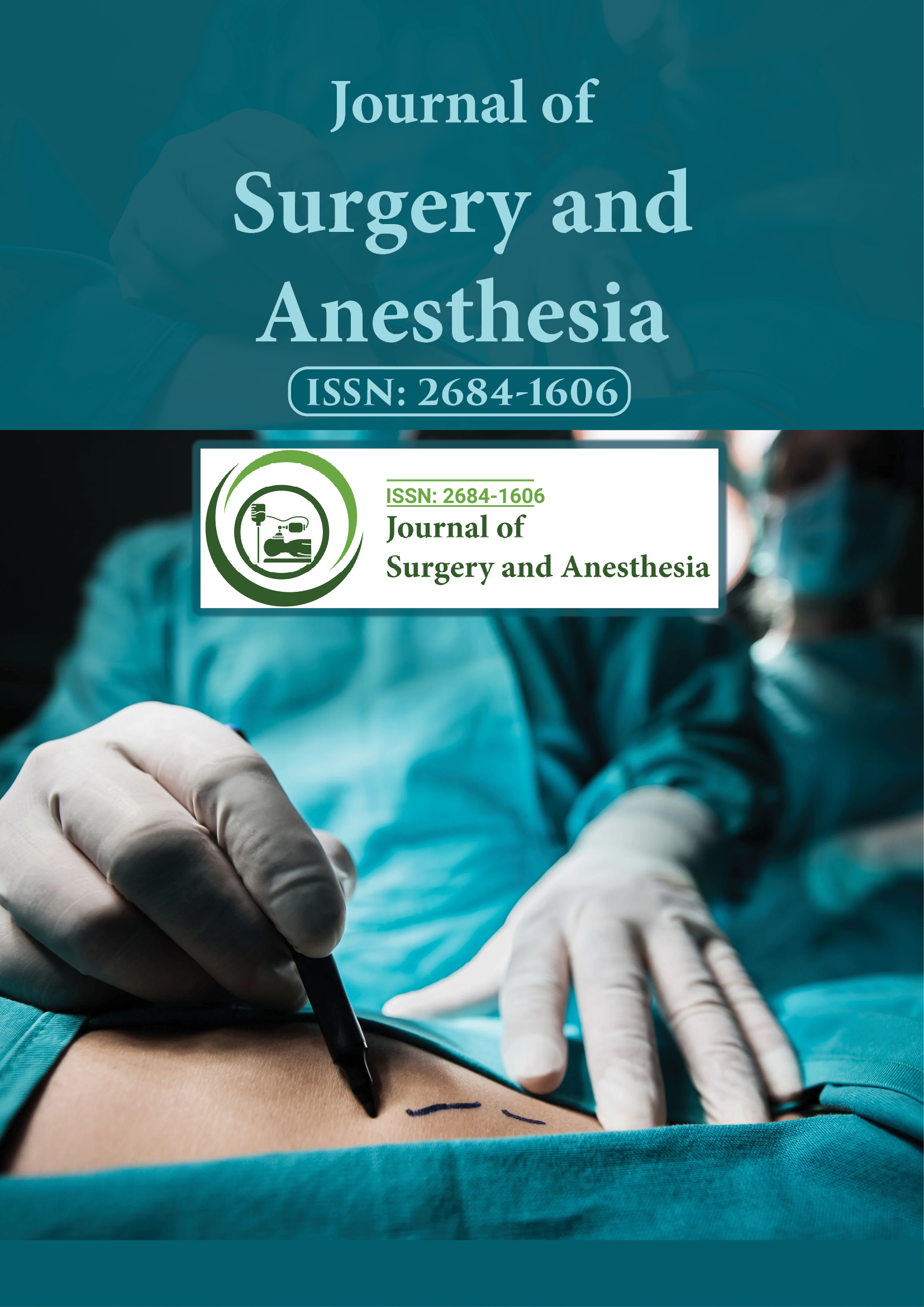Indexed In
- Google Scholar
Useful Links
Share This Page
Journal Flyer

Open Access Journals
- Agri and Aquaculture
- Biochemistry
- Bioinformatics & Systems Biology
- Business & Management
- Chemistry
- Clinical Sciences
- Engineering
- Food & Nutrition
- General Science
- Genetics & Molecular Biology
- Immunology & Microbiology
- Medical Sciences
- Neuroscience & Psychology
- Nursing & Health Care
- Pharmaceutical Sciences
Perspective - (2024) Volume 8, Issue 3
Post-Surgical Complications and Recovery in Congenital Heart Defects
Klandein John*Received: 26-Aug-2024, Manuscript No. JSA-24-27014; Editor assigned: 28-Aug-2024, Pre QC No. JSA-24-27014 (PQ); Reviewed: 11-Sep-2024, QC No. JSA-24-27014; Revised: 19-Sep-2024, Manuscript No. JSA-24-27014 (R); Published: 26-Sep-2024, DOI: 10.35248/2684-1606.24.8.260
Description
Congenital Heart Defects (CHDs) are among the most common birth defects globally, affecting approximately 1% of live births. These defects range in severity, from minor anomalies that require little to no intervention to complex malformations necessitating surgical correction. As advances in surgical techniques, perioperative care and medical technology continue to evolve, more children with CHDs are surviving into adulthood. However, the outcomes after Congenital Heart Surgery (CHS) remain an area of significant interest due to the complexity and variability of these conditions. This article will discuss the outcomes after CHS, considering survival rates, quality of life, neurodevelopmental issues and long-term health implications.
Survival rates following CHS have significantly improved over the past several decades. In the mid-20th century, the mortality rate for infants undergoing heart surgery was extremely high. Today, with better preoperative diagnosis, improved surgical methods and advanced postoperative care, survival rates have dramatically increased. In high-income countries, the survival rate for children with CHDs who undergo surgery is over 90%. However, this figure can vary depending on the complexity of the heart defect, the age of the patient at the time of surgery and the presence of additional health conditions.
For example, conditions such as atrial septal defects or ventricular septal defects have a high likelihood of success following surgical intervention, with survival rates nearing 99%. More complex conditions, such as Hypoplastic Left Heart Syndrome (HLHS) or Transposition of the Great Arteries (TGA), still carry higher risks, although survival rates have improved for these conditions as well.
Despite these advancements, survival disparities exist, particularly in low- and middle-income countries. Factors such as limited access to specialized cardiac care, late diagnosis and inadequate post-operative care contribute to lower survival rates in these regions. Addressing these inequities is essential to improving global outcomes for patients with CHDs.
While survival is the most immediate concern following CHS, long-term Quality of Life (QoL) is equally important. Studies suggest that most children and adults who undergo CHS lead relatively normal lives, although some experience physical, emotional and social challenges related to their condition and its treatment.
Physical challenges can include residual symptoms such as fatigue, difficulty with physical activities and the need for ongoing medications or additional surgeries. Patients with more complex heart defects or those who undergo surgery at an older age may experience more pronounced physical limitations.
Emotional and social challenges are also common among CHD patients. Children may experience developmental delays or learning difficulties, which can impact their social interactions and academic performance. In some cases, the psychological stress of living with a chronic condition can lead to anxiety or depression in both children and adults. Despite these challenges, many patients report a high degree of satisfaction with their quality of life, thanks to the support of family, friends and healthcare professionals.
Neurodevelopmental issues are an important consideration for children undergoing CHS, especially for those with more complex heart defects. These patients may experience cognitive delays, motor skill deficits, or learning difficulties that can affect their academic and social development.
The causes of neurodevelopmental issues in CHD patients are multifactorial. Some of these issues arise from the underlying heart defect itself, while others may be related to the surgical process, particularly if the child undergoes surgery in the neonatal period. Factors such as reduced cerebral oxygenation, prolonged cardiopulmonary bypass and postoperative complications can all contribute to neurodevelopmental challenges.
Children with conditions such as HLHS, TGA, or Tetralogy of Fallot (TOF) are at a higher risk of neurodevelopmental issues compared to those with simpler defects. Early intervention, including physical therapy, occupational therapy and special education services, can help mitigate the impact of these issues and improve developmental outcomes. It is important for healthcare providers to monitor neurodevelopmental progress and provide appropriate support for these children as they grow.
In addition to neurodevelopmental issues, patients who undergo CHS face several long-term health implications. These can include residual cardiac problems, the need for reoperation and the development of non-cardiac conditions such as arrhythmias, pulmonary hypertension, or heart failure.
Residual cardiac problems are common after CHS, particularly in patients with complex heart defects. Some patients may require additional surgeries to correct residual defects or complications from the initial surgery. Regular follow-up with a cardiologist is essential to monitor for these issues and ensure timely intervention if needed.
Arrhythmias are a common long-term complication of CHS, particularly in patients with conditions such as TOF or TGA. These arrhythmias can range from benign, asymptomatic arrhythmias to more serious conditions that require medical intervention or even the placement of a pacemaker. Patients with CHDs are also at an increased risk of developing pulmonary hypertension, which can have significant implications for their long-term health.
Citation: John K (2024). Post-Surgical Complications and Recovery in Congenital Heart Defects. J Surg Anesth. 8:260.
Copyright: © 2024 John K. This is an open access article distributed under the terms of the Creative Commons Attribution License, which permits unrestricted use, distribution, and reproduction in any medium, provided the original author and source are credited.
